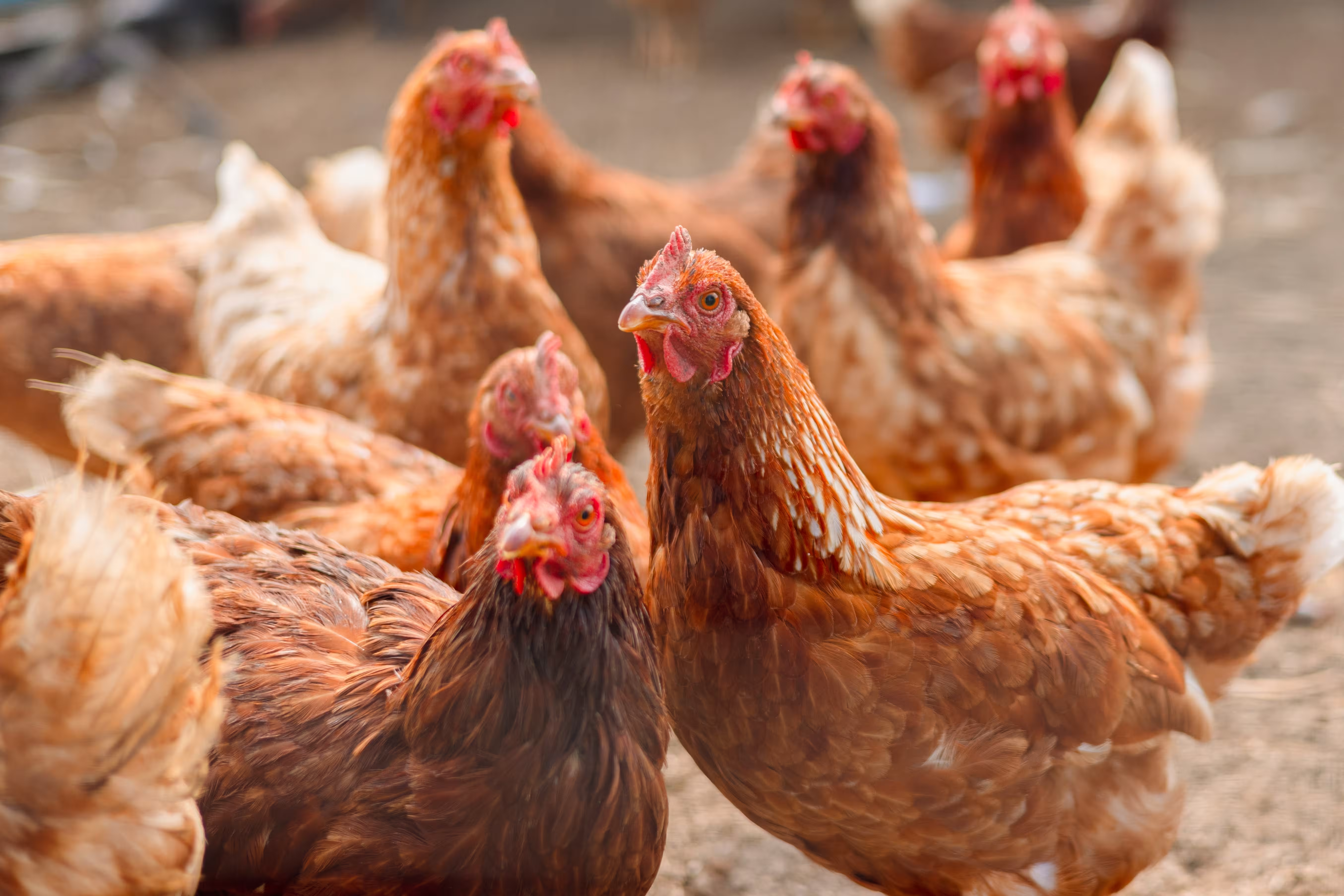




Experiential dining leader The Cheesecake Factory reports on ending cages in global supply chains six years ahead of schedule, following world’s largest egg investigation.

This summer is shaping up to be a celebratory one for hens and the animal activists working on their behalf worldwide. Following our unprecedented investigation into the global egg industry, The Cheesecake Factory proactively reported that the company has reached its 100% cage-free milestone for its global supply chains a whopping six years ahead of its 2030 goal. This win will help save nearly 185,000 hens from brutal lives in battery cages; a win made possible by compassionate people like you.
Creating a brighter, more just world for animals and people alike requires our ongoing and unrelenting efforts to eliminate barbaric battery cages from our broken food system. According to the most recent egg markets update from the USDA, the United States’ cage-free progress continues to climb, reaching 45.7% of hens living outside of cages at the close of June 2025. This steady, upward movement toward a cage-free future demonstrates that focusing our compassion on a critical issue like sparing hens from cages leads to tangible change. When we fight for the well-being of animals and work together to voice consumer demand, corporate executives take note. Consumers want and expect restaurants and retailers to source 100% cage-free eggs in the U.S. and beyond.
The Cheesecake Factory delivers early and eliminates cages
This past month, that kind of positive, tangible change for animal welfare came in the form of a well-known restaurant and its international locations meeting a critical cage-free goal. A major player in the food and hospitality industry, The Cheesecake Factory owns and operates 362 restaurants throughout the United States and Canada, alongside 33 international restaurants operating under licensing agreements. Their products are also found in Barnes & Noble bookstores across the country as well as through familiar online and brick-and-mortar retailers like Harry & David’s and Target.
In 2022, The Cheesecake Factory reached its 100% cage-free goal for its restaurants and bakeries three years ahead of schedule while also pledging to source only cage-free eggs for all of its international partners by 2030. In a big win for hens longing to spread their wings, the company accomplished this goal six years early, according to their 2024 Corporate Social Responsibility Progress Report.
Given that the company has locations in countries such as Kuwait, Saudi Arabia, Qatar, Bahrain, Mexico, China, and Thailand, this cage-free milestone can be leveraged as a powerful example for other companies sourcing their eggs from these regions.
Also noteworthy is the fact that eggs used in cakes account for 90% of The Cheesecake Factory’s egg purchases, making any future third-party bakery partnerships through which its cakes are sold a positive step for hen welfare.
Corporate executive responds to clear consumer demand
When The Humane League’s earlier query to The Cheesecake Factory about its progress went unanswered initially, it was eventually forwarded on to the CEO who promptly responded with the company’s positive progress and huge accomplishment.
“What we love about this example–beyond the obvious implications it has for sparing so many hens from battery cages–is how clearly it illustrates that executive buy-in trickles down into swift action,” explains Hannah Surowinski, Sr. Associate Director of Global Corporate Relations.
Now, we’re looking to prompt that same executive buy-in and swift action for corporations like Best Western and Brinker International who remain stunningly quiet despite our repeated outreach. With billions of hens across the globe still experiencing the misery of cage confinement, swift action on behalf of our feathered friends is exactly what is needed.
Looking to get in on swift action for egg-laying hens, broiler chickens, cows, pigs and other animals suffering from factory farming conditions? Join thousands of fellow activists around the world to create the kind of policy change we all demand today.






